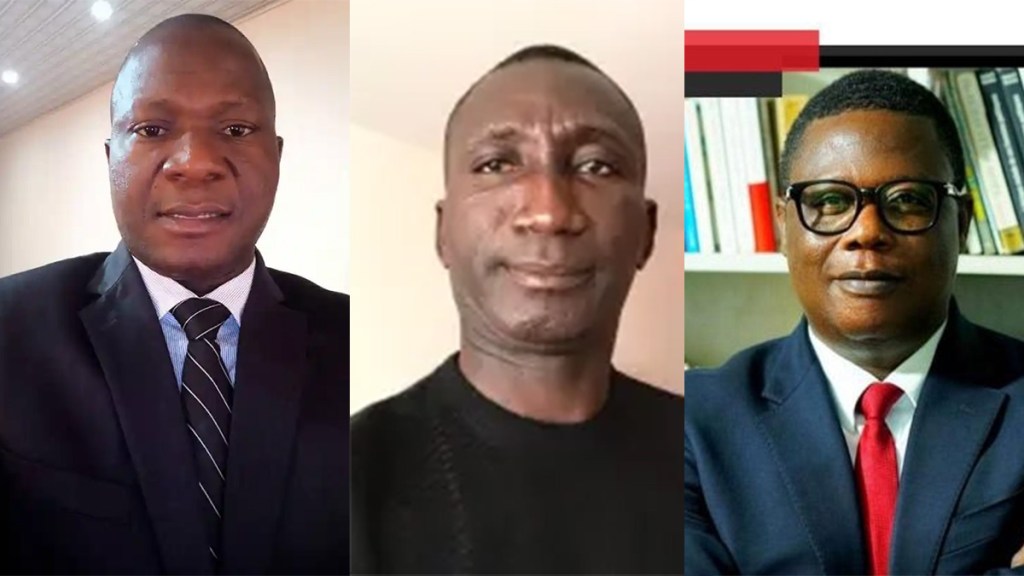One year after news broke about a list of over 50,000 phone numbers allegedly selected for surveillance with NSO Group’s Pegasus spyware, journalists around the world continue to live and work with the fear that their phones can be used to track their conversations and penetrate all the personal and professional data stored on their devices.
In the West African country of Togo, three journalists who were included on the Pegasus Project list told CPJ’s Jonathan Rozen how the revelations have affected their work and livelihood over the past year.
“Since I heard this news until today I can no longer easily communicate with my phone,” Ferdinand Ayité, director of the L’Alternative newspaper, said. “There is a kind of permanent fear that forces me to change my means of communication.”
Global press freedom updates
- Taliban intelligence officers force Foreign Policy columnist Lynne O’Donnell to tweet apologies for her reporting
- Greek broadcaster Real FM office targeted in arson attack
- Tajikistan authorities announce further extremism investigations into 3 detained journalists
- Somaliland authorities indefinitely suspend the BBC
- Indian journalist Rupesh Kumar Singh arrested following nine-hour home raid
- Journalist Ayub Ali Warty criminally charged, briefly detained in Iraqi Kurdistan
- Botswana journalist Tshepo Sethibe criminally charged over “alarming publications”
- Israeli forces arrest Palestinian journalist Amer Abu Arafa in the West Bank
- Tigrayan authorities in Ethiopia detain five Tigrai TV journalists
- DRC journalist Joseph Kazadi remains behind bars after release of U.S. reporter Nicolas Niarchos
- Indonesian journalists face wave of harassment and intimidation
- Angolan journalists harassed while covering election rallies
Spotlight
U.S. President Joe Biden and Saudi Crown Prince Mohammed bin Salman are seen in Jeddah, Saudi Arabia, on July 16, 2022. (Reuters/Mandel Ngan)
As U.S. President Joe Biden’s trip to the Middle East came to an end last week, CPJ released a statement expressing dismay that Biden failed to meaningfully address press freedom and journalists’ rights.
Biden’s visit started in Israel and the Palestinian territories, where he failed to meet with the family of slain Palestinian American journalist Shireen Abu Akleh, whom the U.S. State Department concluded was “likely” killed by the Israeli military in May. Biden’s trip continued to Saudi Arabia, where he met with Mohammed bin Salman and Egyptian President Abdel Fattah el-Sisi.
“The U.S. effectively shrugged its shoulders over the killing of Saudi journalist Jamal Khashoggi, did not push for the release of journalists jailed in Saudi Arabia and Egypt, and did not commit to an FBI-led investigation into the killing of Palestinian American journalist Shireen Abu Akleh,” said Sherif Mansour, CPJ’s Middle East and North Africa program coordinator. “To add insult to injury, we had to watch his fist bump and abysmal cozying up to Saudi Crown Prince Mohammed bin Salman, the man that U.S. intelligence said approved Khashoggi’s murder. Journalists in the region – and the world – are sadly more vulnerable after this trip.”
What we are reading
- Hacking the press: The surveillance threat to MENA’s journalists – Sherif Mansour, The New Arab
- Optimism of a more open Ethiopia fades, expelled journalist says – Salem Solomon, Voice of America
- What it’s like working in the deadliest country in the world for journalists – Marcela Turati, Nieman Reports
- CPJ urges EU to hold India accountable for press freedom violations – Times of India
- Using artificial intelligence, geo-journalism, and data journalism, journalists dodge some of the dangers of covering the Amazon – César López Linares, LatAm Journalism Review
- Why we need to change the way we write about Africa – Lerato Mogoatlhe, Africa No Filter
Explore our database of attacks on the press.
